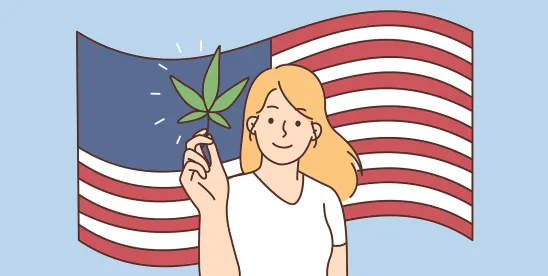On April 30, 2024, following a months-long process, the U.S. Department of Justice (DOJ) circulated a proposal to reclassify marijuana from a Schedule I to a Schedule III controlled substance. This historic move—likely the most substantial change to federal drug policy in more than fifty years—would place marijuana amongst the likes of acetaminophen with codeine, some anabolic steroids, testosterone, and ketamine, unlike when it previously resided on Schedule I alongside substances such as heroin, LSD, and ecstasy.
The DOJ will send the proposal to the White House Office of Management and Budget for review. While any reclassification is months from taking effect (and may become embroiled in litigation), the cultural significance of this move toward easing federal restrictions on marijuana is massive, and there are many legal issues to unpack.
Quick Hits
- The proposal to reclassify marijuana from Schedule I to Schedule III is arguably the most significant change to federal drug policy in decades.
- There will be no immediate changes—the proposed rule change comes with a public comment period that could lead to legal challenges (and perhaps, changes) to the proposal.
- The proposal would not completely legalize marijuana at the federal level, but it classifies marijuana as having a currently accepted medical use.
- The proposal would not change any of the state marijuana legalization laws, nor would it change state employment laws that are often triggered with marijuana use, such as disability discrimination or off-duty conduct laws.
What Does All of This Mean?
The cultural zeitgeist in the United States has shifted in favor of legalizing marijuana, and this proposal aligns with that shift. While the proposal will go through a lengthy formal rulemaking process that may result in legal challenges and/or changes, it is—regardless of the outcome—hugely significant that the federal government has acknowledged marijuana’s potential medical benefits and taken the time and effort to conduct such a meaningful study.
The proposal is expected to have a tangible impact, in that it would allow for additional research, reduce some of the more punitive criminal consequences associated with marijuana, allow the U.S. Food and Drug Administration to have additional oversight—and, of course, generally subject marijuana to fewer restrictions and allow for it to be obtained through a prescription (in addition to the states that have already legalized medical marijuana). It would almost certainly provide a boost to the cannabis industry as a whole, allowing such businesses to bank more freely and openly in federally regulated banks and operate without major tax burdens in states where marijuana is legal. (Namely, those businesses would no longer be subject to the sections of the Internal Revenue Code and Internal Revenue Service regulations that prohibit credits/deductions related to income generated by sales of Schedule I substances.)
How Might This Impact Employers?
The proposal does not go so far as to fully legalize marijuana at the federal level. While it arguably comes closer than ever to that point, the proposal does not resolve the federal-state conflict pertaining to marijuana, nor does it change any of the various state marijuana legalization laws or other state employment laws frequently implicated by marijuana issues in the workplace (such as disability discrimination or off-duty conduct laws). The biggest impact will be with regard to the advantages imparted to the marijuana industry. This shift may also push some employers to reconsider whether to remove marijuana from testing panels—although the current proposal does not require this.





 />i
/>i

